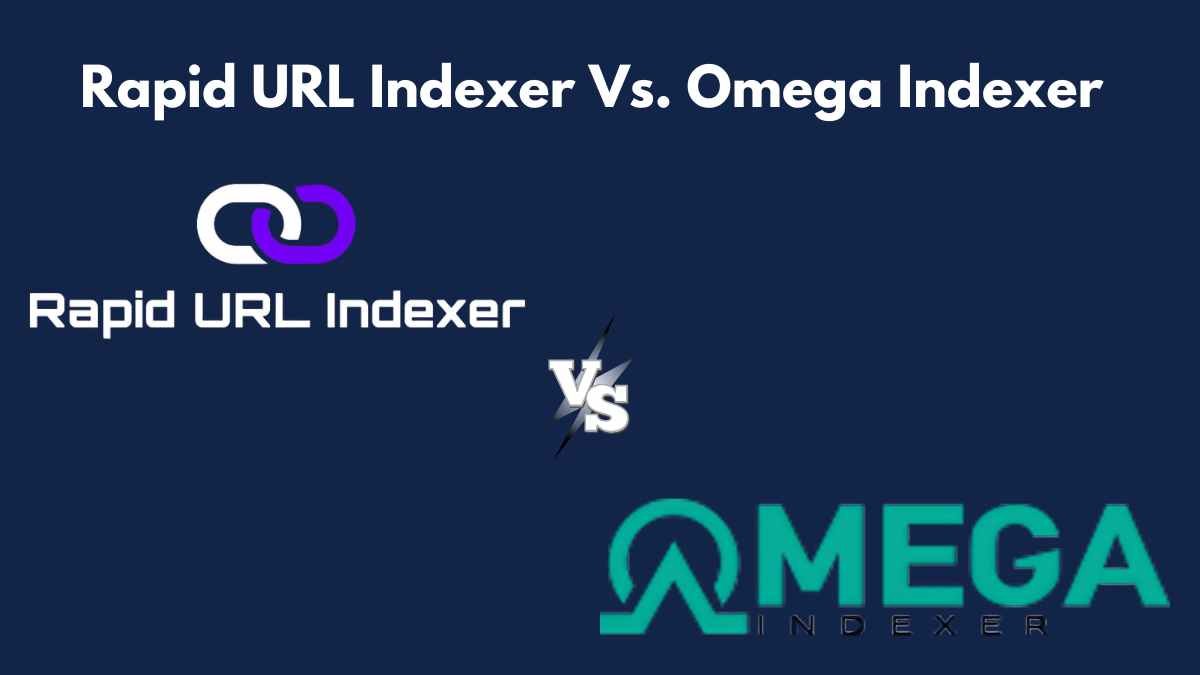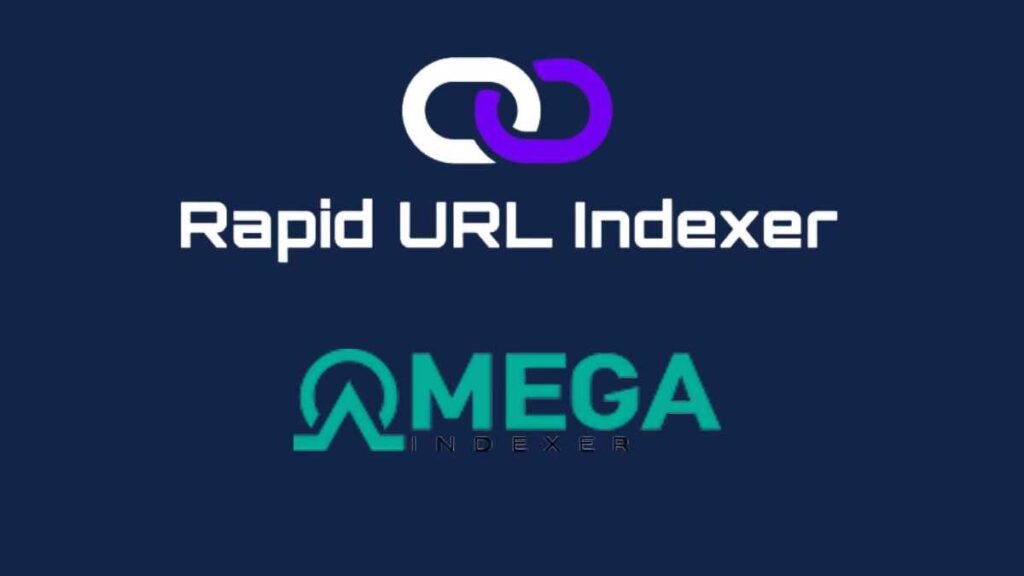
URL indexing is critical when it comes to improving your website’s visibility on search engines. Your SEO efforts can go unnoticed without getting your web pages indexed.
Two popular tools for ensuring quick and efficient URL indexing are Rapid URL Indexer and Omega Indexer. Both offer features that can boost your search engine visibility by indexing your URLs faster. However, there are notable differences between the two services that can impact your SEO strategy.
This article compares Rapid URL Indexer vs. Omega Indexer, focusing on features, indexing rates, safety, and pricing to help you make the best choice for your needs.
What Is URL Indexing, and Why Is It Important?
URL indexing is the process by which search engines like Google discover, crawl, and add your web pages to their search results. Without proper indexing, your web pages remain invisible to users searching for related keywords, no matter how well-optimized your content might be.
Fast and reliable URL indexing is essential for website owners, SEOs, and digital marketers because it ensures that newly published or updated pages appear in search results as quickly as possible.
This is particularly important for websites that must stay timely, such as news platforms, blogs, or e-commerce sites with frequent product updates.
However, getting indexed is not always smooth, so services like Rapid URL Indexer and Omega Indexer exist—to ensure your URLs are picked up by search engines more effectively.
Read Also: What Is Rapid URL Indexer?
Rapid URL Indexer Vs. Omega Indexer: Feature Comparison

Pricing Model
One of the most significant differences between Rapid URL Indexer vs. Omega Indexer lies in their pricing models.
Rapid URL Indexer offers a pay-as-you-go system, allowing you to purchase credits as needed. This makes it ideal for users with varying indexing needs, such as seasonal e-commerce stores or bloggers.
Omega Indexer, on the other hand, operates on a flat-rate, credit-based system, charging a fixed rate per link, which can be less flexible for smaller projects.
| Feature | Rapid URL Indexer | Omega Indexer |
|---|
| Pricing Model | Pay-as-you-go | Flat-rate per link |
| Refund Policy | 100% refund for unindexed URLs | No refund guarantee |
| Credit Flexibility | High | Moderate |
Indexing Rate and Speed
The indexing rate and speed are critical factors for SEO professionals and website owners looking to improve search visibility quickly.
Rapid URL Indexer boasts an impressive 91% success rate in getting URLs indexed, among the industry’s highest. Omega Indexer, while functional, does not disclose specific success rates, making it harder to gauge its efficiency.
Additionally, Rapid URL Indexer offers initial indexing reports within 4 days and a final report within 14 days. However, Omega Indexer’s timeline is less transparent, often taking 7–8 days just for initial results.
Read Also: How Does Rapid URL Indexer Work?
Refund Policy
Rapid URL Indexer provides a 100% credit refund for URLs not indexed within 14 days, giving users peace of mind.
In contrast, Omega Indexer does not offer a guaranteed refund policy, which can be a downside for users who want to ensure they’re only paying for successful results.
Detailed Reporting and Analytics
Rapid URL Indexer stands out with its detailed reporting system when it comes to tracking the progress of URL submissions. It provides users with visual charts, downloadable CSV reports, and detailed insights, making it easier to analyze the performance of your indexing projects.
Omega Indexer offers basic reporting but lacks the advanced data presentation and export options available in Rapid URL Indexer.
Omega Indexer Alternative rapidurlindexer.com – Additional Features
WordPress Plugin
For WordPress users, Rapid URL Indexer offers a free WordPress plugin that simplifies URL indexing. The plugin automatically submits newly published and updated posts for indexing, saving time and ensuring faster visibility for fresh content.
Omega Indexer lacks this level of integration, making Rapid URL Indexer a better choice for WordPress-based websites that update frequently, such as blogs or news sites.
RESTful API
Both services offer APIs for integration into existing SEO tools and workflows, but Rapid URL Indexer’s RESTful API is particularly robust. It allows agencies and large-scale operations to automate URL submissions, customize indexing strategies, and access real-time data.
This makes it a more versatile option for users who want deeper control over their SEO processes, especially local SEO performance.
Drip Feed Option
Omega Indexer does offer a drip feed option, allowing users to control how many URLs are submitted over time. This feature is helpful for those who prefer gradual indexing to avoid overwhelming search engines.
However, Rapid URL Indexer’s more efficient bulk submission process tends to deliver quicker results for those looking for immediate impact.
Rapid URL Indexer Vs. Omega Indexer: Use Cases
Website Types
Rapid URL Indexer and Omega Indexer cater to different website types. Whether you run an e-commerce store, a news website, or a corporate blog, Rapid URL Indexer’s high success rate and fast reporting ensure that your content is indexed promptly.
Omega Indexer’s slower pace and simpler features could suffice for portfolio sites or educational platforms, which may update less frequently. However, Rapid URL Indexer remains a more robust option for users who need fast, reliable indexing.
Backlink Indexing
Both tools are useful for indexing backlinks, which is crucial for SEO campaigns. Rapid URL Indexer is especially beneficial for tiered link-building strategies, ensuring that even secondary and tertiary backlinks are crawled and indexed.
Omega Indexer also supports backlink indexing but may not handle complex link-building campaigns as fast or efficiently.
Mass Page Websites
For mass-page websites or platforms relying on press releases, Rapid URL Indexer outperforms Omega Indexer by more effectively tackling the challenges of duplicate content.
This is crucial for press releases distributed across multiple platforms, as Rapid URL Indexer’s advanced crawling techniques help prevent Google from marking them as low-value duplicate content.
Safety and White Hat Practices
One of the concerns with any indexing service is whether it adheres to white-hat SEO practices.
Rapid URL Indexer and Omega Indexer follow Google-approved methods for submitting URLs, but Rapid URL Indexer strongly emphasizes avoiding artificial or spammy links. It also respects robots.txt files and other site crawl preferences, ensuring it only uses ethical, safe indexing methods.
This reduces the risk of penalties from Google, making Rapid URL Indexer the safer choice for long-term SEO strategies.
Customer Support and User Experience
Customer Reviews
Customer feedback is overwhelmingly positive for Rapid URL Indexer, with users praising its high indexing rate, responsive customer support, and transparent refund policy.
Omega Indexer has fewer reviews available, but users appreciate its lower cost-per-link pricing, though some note that the overall service can feel less comprehensive.
Success Stories
Many success stories highlight the benefits of Rapid URL Indexer. For instance, a blogger reported a 30% increase in organic traffic after using the service. In comparison, an e-commerce store saw 85% of its new product pages indexed within a week, leading to a noticeable boost in sales.
SEO agencies have also credited Rapid URL Indexer for helping them recover from penalties and improve search rankings for their clients.
Conclusion – Rapid URL Indexer Vs. Omega Indexer
When compared to Omega Indexer, Rapid URL Indexer offers a more comprehensive and reliable solution for URL indexing. Its higher success rate, faster reporting, advanced features like a WordPress plugin and RESTful API, and guaranteed refunds make it a standout choice for SEO professionals and website owners.
While Omega Indexer may appeal to users seeking a simpler, lower-cost solution, Rapid URL Indexer’s overall effectiveness and long-term benefits make it the superior tool for improving search visibility and boosting organic traffic.